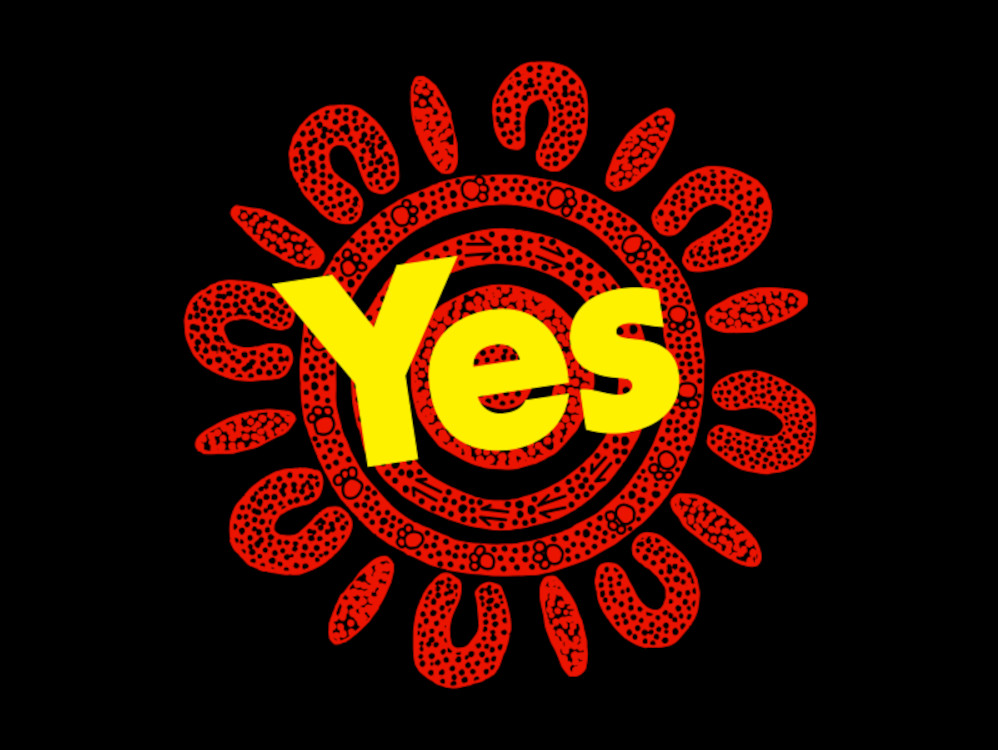From Raymond Minniecon Indigenous Pastor, Scarred tree Ministries, Glebe NSW on Facebook Oct 14
“It’s a very dark night for my people. I feel totally devastated by the politicians in our country.
“We know Jesus loves and supports us. He is weeping with us.
“I now have deep doubts about the trust, care and concern of the Australian community to deal with our people’s challenges…We feel betrayed again.”
From Professor Anne Pattel-Gray, University of Divinity, Head of the School of Indigenous Studies, on the Drum Oct 15
Asked by the ABC Drum’s host Ellen Fanning about what she thought of the result Pattel-Gray responded “Devastated.
“I mean, I feel for my countrymen and women across this nation that the vote was an overwhelming rejection of us as a people.
“And we’ve had since the nineties, the whole process of reconciliation. So you can virtually say reconciliation is dead in the water as a result of this, because that rejection has re-traumatized our people, has cut to the core of their humanity. And once again, it states to us as a nation that we have no value and worth in this country.
“So there’s a lot of conversations that need to happen, and how we go forward is open for question, but also we Aboriginal people, we’re resilient people and our resilience will continue to shine through and we’ll go away and lick our wounds and mourn and grieve a bit. But we’ll come back, hopefully even stronger.”
Fanning asked if Pattel-Gray was talking about the failure to recognise First nations’ people.
“Recognising us as First Nations people recognising the poverty that we are confined to, how we’re disenfranchised in this country, our poor health, our lack of access to good education. These were all the questions that were a part of the referendum.
“And the reason that we encouraged people to vote yes, because it was giving us a voice. We’ve had successive governments in this country fail to deliver in closing the gap on our health, education, prosperity, and every other way, high incarcerations, high mortality rates.
“And last night was, Hey, I don’t know if I really care about what’s happening in your world. I mean, the media, the commercial media even stated that in regards to where people are today in their own personal lives, that we were lucky if we rated number 16 on their radar.
“So what does that say about our nation and the respect that should be given to us? Or even the recognition that somehow we in this country need to look at our history, understand our history, and what has happened in our history. And to me, the no vote was the resounding reflection of the lack of knowledge about that history and their ignorance.”
Reconciliation: Later in the program, Pattel-Grey gave her theological perspective:
“Ronald Wilson [the High court Judge who was the the co-author with Mick Dodson of the 1997 Bringing Them Home report into the Stolen Generation] brought the reconciliation agenda to the table and as a process of bringing about what he determined, justice. Now, from a theological perspective and from a Christian perspective, there can be no reconciliation unless those that have the perpetrator, one, acknowledges they’ve done wrong, and two, repent of that wrong, and three, then place reparations and delivers justice in order that we can be reconciled. So to jump from a history of injustices to, oh, we are reconciled is a joke. What happened to every step in the middle?
Later Ellen Fanning asks “Did it die yesterday, do you think, Anne? Is that what you’re saying?”
Pattel-Gray: “Look, reconciliation’s been around a while, and I suppose the combination of the referendum has put it to bed. It is buried it. So yes, it’s dead in the water, now in Australia.”
Fanning resonds: “, “I find that astounding coming from you as a Christian person. The idea that you must always strive to reconcile, even if turn the other cheek. Why do you say that the circumstances do not allow for this reconciliation?”
Pattel-Gray: “Because there’s no justice. Reconciliation is bound on, or based on the perpetrator acknowledging they’re wrong. This country is not prepared to do this, and then it is not prepared to pay reparations, to set right the injustices and to give justice. And you cannot be reconciled if you do not do those steps. This country hasn’t done those steps.
“Now the referendum was an opportunity to take a small step in reconciliation, which was a logical step towards justice. Well, that didn’t happen. So how can we continue to talk about reconciliation without Justice?”
ABC Indigenous repoter Dan Bouchier: “What I heard from Ann just then is what do Aboriginal people have to reconcile? What is that side of this conversation? Aboriginal Torres Strait Islander people? Is that the question here, that it’s not for indigenous people to do the reconciling?”
Pattel-Gray: “It was a perfect opportunity. The referendum was a perfect opportunity for this nation to take that step closer towards reconciliation by giving us recognition within the Constitution and also giving us a voice.
“And the voice doesn’t take as far enough, but it’s a step towards being heard and being consulted. But yes, I mean, for so long, Aboriginal nation has stated that reconciliation as it’s defined by government, is to appease the consciousness of white Australia. It is not about justice for First Nations people, and quite often they say that they want to sugarcoat injustices to make it palatable for us to swallow. So these are some of the hard issues and conversations that this country must have.”

